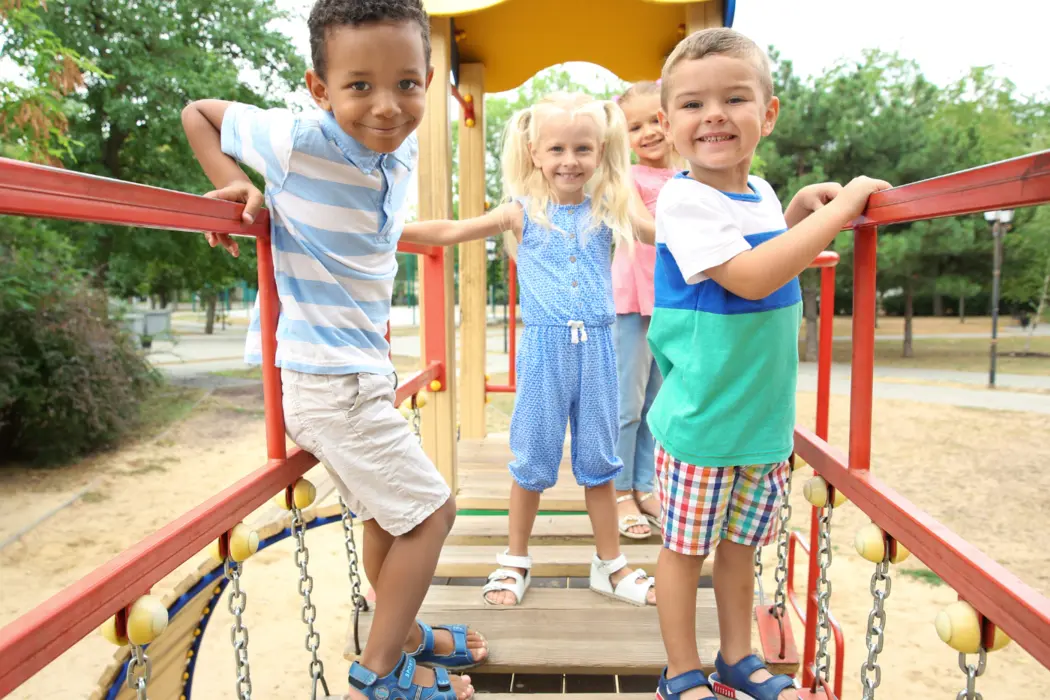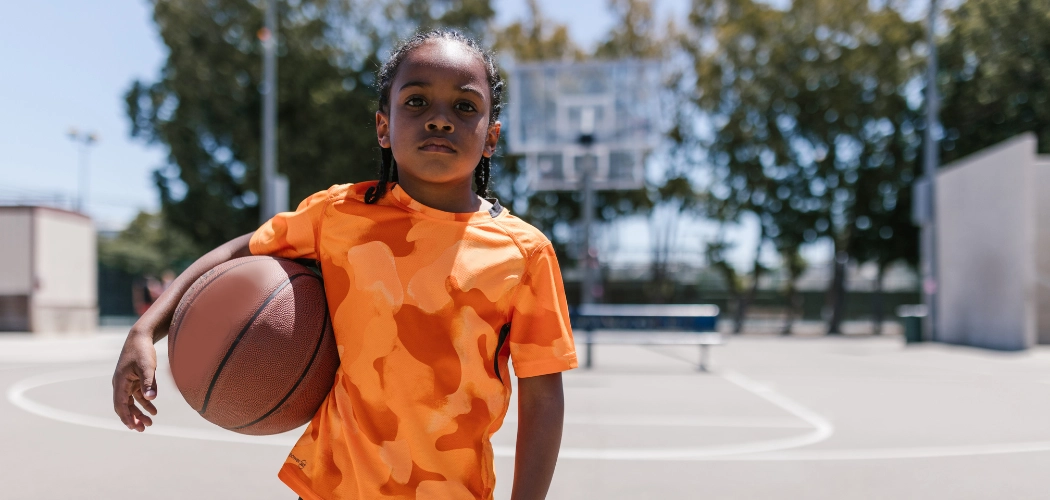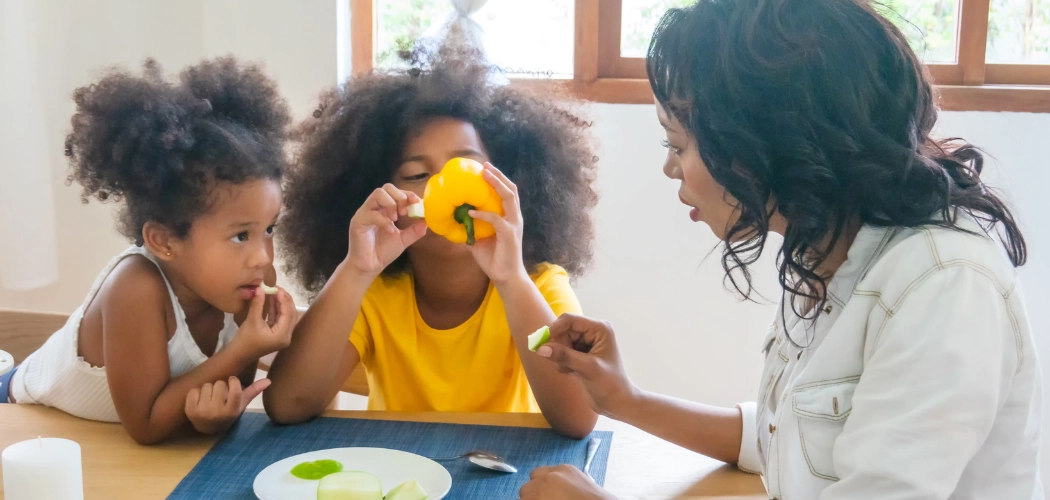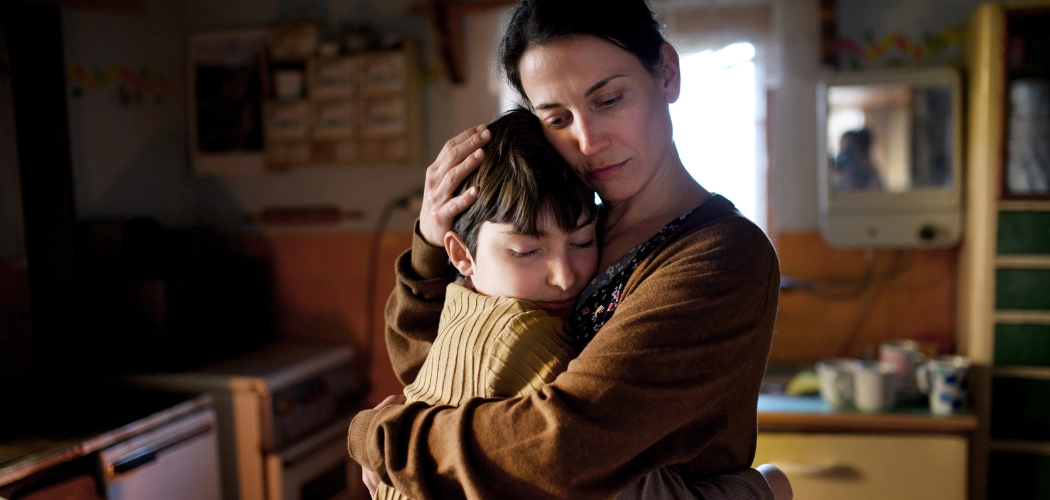It’s a scene most mamas dread – your child comes home from school in tears because of a conflict on the playground. The heartbreaking stories start pouring out about teasing, exclusion or arguments over who gets to play on the monkey bars first. As a parent, it’s so tough to know how to handle these complex playground politics. What’s normal kid conflict versus bullying? How much should you intervene versus letting kids work it out themselves? It’s a tricky balancing act.
But navigating the social landscape of the schoolyard is an important yet often overlooked part of parenting. Peer relationships shape your child’s self-esteem, empathy and ability to regulate emotions. Early social experiences also lay the foundation for future friendships and handling conflict. That’s why as a mom, you play a vital role in equipping your child to navigate playground politics successfully.
In this article, we’ll explore practical tips on how moms can help their kids handle the complex social world of recess and peer interactions. You’ll learn how to monitor for bullying, teach conflict resolution skills, find positive role models, set the tone at home, enlist other parents as allies, collaborate with the school, and seek outside support when needed. With the right strategies, you can guide your child to not just survive, but thrive socially on the playground. Let’s dive in!
Understand the Social Landscape
The playground has its own complex social hierarchy and politics that often mimic what we see in the adult world, just on a smaller scale. Cliques form, leaders emerge, and children find their place in the pecking order. While adults often lament the nostalgia of carefree playground days, most kids experience real stress navigating these social dynamics. Understanding the unwritten rules can help parents empathize and guide their children.
Common social roles on the playground include:
- The Leader – This child influences others and makes decisions about games and activities. They are often charismatic and confident.
- The Sidekick – Friends of the leader who reinforce their choices. They provide social status, laughs, and backup.
- The Joker – Uses humor and goofiness to get attention and raise social standing. Often considered “class clowns.”
- The Bully – Asserts dominance through teasing, name-calling, gossip, and physical aggression.
- The Victim – Gets picked on and excluded. Struggles to stand up for themselves.
- The Floater – Friendly with different groups, but not fully part of any one clique.
- The Loner – Plays alone. May be very shy or have trouble relating to peers.
- The Teacher’s Pet – Craves adult approval. Follows rules closely and tattles on others.
Gender often influences social standing as well. Boys tend to form looser groups focused on physical activities and competition. Girls may form tighter cliques, valuing close friendships, conversation and cooperation. However, these are generalizations, and every child seeks a sense of belonging in their own way.
Monitor for Bullying
Bullying can take many forms, so it’s important for parents to understand what bullying looks like and know the warning signs.
The main types of bullying include:
Physical bullying – Using physical actions to gain power and control over a target. Examples include hitting, punching, kicking, spitting, tripping, pushing, taking belongings or making rude hand gestures.
Verbal bullying – Using words, statements and name-calling to gain power over a target. Examples include making threats, spreading rumors, mocking, teasing, name-calling, intimidating or making offensive comments.
Relational bullying – Trying to hurt someone’s reputation or relationships. Examples include social exclusion, leaving someone out on purpose, telling others not to be friends with someone, spreading rumors, embarrassing someone in public.
Cyberbullying – Using electronic means and social media to harass, threaten or target someone. Examples include posting harmful information online, creating fake profiles, sending unwanted messages or photos, online gossip and rumors.
Some warning signs that may indicate a child is being bullied:
- Unexplainable injuries
- Lost or destroyed clothing, books, electronics
- Frequent headaches or stomach aches
- Changes in eating habits
- Difficulty sleeping or frequent nightmares
- Declining grades, loss of interest in school
- Sudden loss of friends or avoidance of social situations
- Anxiety, depression, sadness or low self-esteem
If you suspect bullying, talk to your child and assure them it’s not their fault. Gather information about the bullying, including who was involved, what happened, and where it occurred. Document bullying incidents and report them to the school. Work collaboratively with school staff to find solutions and talk to the parents of the students who bullied. Seek counseling or mental health treatment if needed. Remind your child you are there for them and will take steps to stop the bullying.
Teach Conflict Resolution Skills
As kids navigate playground politics and make friends, it’s inevitable that they will encounter some conflicts. Learning how to resolve minor disputes constructively is an important life skill that will serve them well into adulthood. As a parent, you can coach your kids through some common conflict scenarios to equip them with the tools to handle these situations independently.
The goal is to teach kids how to resolve conflicts calmly, come to compromises, and maintain relationships even when disagreements happen. When kids can do this, it builds their confidence, social skills, and ability to self-advocate. It also keeps small issues from escalating into bigger problems down the road.
Some sample conflict scenarios you can walk through with your child include:
- A friend wants to play with the same toy they are using. Model taking turns, sharing and compromising.
- A game has disputed “rules” between kids. Talk through ways to agree on fair rules.
- Someone calls them a mean name. Demonstrate walking away versus retaliation.
- A friend spreads a rumor about them. Show speaking directly to the friend first before telling an adult.
- A friend excludes them from a game or activity. Help them practice ways to ask to join in appropriately.
As you discuss these situations, emphasize listening first, expressing feelings calmly, thinking creatively, apologizing when necessary, and being respectful even when upset. Praise your child when they come up with thoughtful conflict resolution strategies on their own during these conversations.
Other tips include:
- Reading kids books together about friendship struggles and analyzing how characters resolve issues.
- Role playing scenarios with stuffed animals or action figures so your child can practice.
- Validating emotions and building empathy skills. Say things like “I know you must have felt sad when your friend said that.”
- Encouraging verbal problem solving. Say, “What are some things you could say or do to solve this problem?” Then listen.
- Not jumping in to solve disputes for them immediately so they can practice handling it themselves first.
By taking time to walk through social predicaments that will inevitably come up on the playground and in friendships, you are equipping your child with the necessary skills to navigate these tricky situations on their own. With your guidance, they will become masters of conflict resolution.
Find Healthy Role Models
As children grow, their friends and peers quickly become a major influence. Kids naturally want to fit in and emulate the behaviors they see around them, which is why it’s so important to surround them with positive role models and friendships.
When on the playground, pay attention to who your child gravitates towards and wants to spend time with. Get to know the parents of children your kid befriends so you can determine if they share similar values. Schedule play dates with children who are kind, exhibit good sportsmanship, and treat others with respect. Compliment and praise your child when they befriend and look up to positive peers.
If your child becomes part of a friend group that tends to leave others out, bully, or act unkind, have open conversations about why that type of behavior is hurtful. Roleplay how to stand up for others and how to make friends in a more inclusive way. Provide guidance on identifying positive qualities in potential friendships.
Outside of their peers, expose your child to role models that embody traits you want them to develop – compassion, integrity, determination, courage, gratitude and so on. Share stories about inspiring people making a positive difference. Highlight athletes, artists, activists and others who work hard, overcome adversity and choose kindness. Discuss the actions you admire in these role models and why.
With your support and guidance, your child can surround themselves with positive peer influences. Their friendships and role models will shape their character, values and behavior for years to come.
Set the Tone at Home
As the saying goes, home is where the heart is. The environment we create at home provides an emotional foundation for our kids that they carry with them wherever they go. By setting the right tone at home, we can equip our children to handle social challenges with inner strength and wisdom.
Build Self-Esteem and Emotional Intelligence
Self-esteem is crucial for weathering the ups and downs of playground politics. Children who feel good about themselves from the inside out are less likely to bend to peer pressure or be devastated by unkind words. We can nurture our kids’ self-esteem by:
- Giving regular doses of positive reinforcement
- Helping them identify and develop their natural talents
- Avoiding harsh criticism or comparison with others
- Teaching them to self-validate rather than seek approval
Promoting emotional intelligence is also key. Help your child identify and process their feelings. Teach them to walk away when angry or take deep breaths when anxious. Role model healthy emotional responses and regulation strategies.
Establish Supportive House Rules
The household rules we set also impart values about relationships and conflict resolution. Some examples:
- No name calling or hurtful language – model respect
- Take turns and share – encourage cooperation
- Admit when you’re wrong – teach accountability
- Discuss problems calmly – promote nonviolence
- Express appreciation for others – reinforce kindness
Rules work best when kids help establish them. Enforcing rules consistently shows you mean what you say. But allow flexibility – rules can be revisited as kids grow.
The tone we set at home provides a nurturing haven kids can count on, even when navigating the complex social world of the playground. With good self-esteem and values like respect and cooperation at their core, our children build resilience to face social challenges with empathy and integrity.
Communicate with Other Parents
As children grow, their social circles expand beyond the home. While it’s normal for kids to have conflicts, it can be stressful for parents when issues arise. Maintaining open communication with other parents provides many benefits for everyone involved.
Build a Parent Community
Getting to know other parents allows you to learn about their family values and parenting styles. You can find parents to connect with through school, sports, neighborhood events, and community organizations. Exchange contact information so you can reach out with questions or concerns. Having a network of parents helps create a unified team supporting the kids.
Create a Support System
No parent is perfect – we all make mistakes. By building relationships, parents can learn from and encourage each other. If your child is having an issue with a friend, reach out to the other parent calmly. Avoid placing blame, and work together to find a positive resolution. Knowing you have caring allies makes parenting less intimidating.
Handle Difficult Conversations
While open communication is ideal, you may sometimes disagree with other parents. If a sensitive issue arises, have a private conversation in person. Listen without judgment, validate their perspective, and explain your viewpoint respectfully. Rather than criticizing their parenting, focus on your child’s feelings and needs. With patience and empathy, you can work through tense situations while modeling conflict resolution skills.
By taking steps to unite with other parents, you gain invaluable support. Together, you can create a web of care that helps children thrive socially. With teamwork and understanding, parents can navigate playground politics smoothly.
Work with the School
As a parent, you want to cultivate a strong partnership with your child’s teachers and the school administration. This collaboration is key for addressing any social or behavioral issues that arise at school.
When issues come up, set up a time to talk productively with your child’s teacher. Focus the conversation on working together to find solutions rather than blaming. Provide background details the teacher may not be aware of and ask for their observations from the classroom. Maintain an open dialogue to partner in helping your child.
Some tips for productive parent-teacher communication:
- Set up regular check-ins, not just when problems occur
- Listen carefully to understand the teacher’s perspective
- Share relevant information about your child and home life
- Ask the teacher for their advice and insight
- Develop an action plan together to help your child
- Show appreciation for the teacher’s time and effort
Know when to reach out to administration for additional support. For ongoing bullying or social struggles, the principal, counselor or other administrators can help address the issues school-wide. Bring them into the conversation to work with you and the teacher in resolving the situation.
Having a collaborative relationship with your child’s school is invaluable for navigating playground politics and other social challenges children face. Together, you can promote positive behavior and success.
Seek Outside Support When Needed
While most social dynamics on the playground can be worked through, sometimes it’s important to seek outside support. If you notice any of the following signs, consider involving a professional:
- Your child exhibits intense anxiety, fear or avoidance around going to school or the playground
- Your child complains frequently of physical ailments like stomachaches or headaches prior to going to school
- You observe a major change in your child’s mood, demeanor, sleep or appetite
- Your child begins exhibiting self-destructive behaviors
These could be signs that your child is suffering from bullying or social exclusion beyond what is typical. Don’t hesitate to reach out for help from trained professionals. Here are some resources:
Bullying prevention programs – Many schools and communities have free workshops, mentoring programs, and training to prevent bullying and help students develop positive social skills. Reach out to counselors, social workers, and administrators at your child’s school.
Youth mentoring organizations – Big Brothers Big Sisters has chapters across North America that match kids with adult role models and friends. Research shows mentoring can build resilience.
Child psychologists and counselors – If you’re worried about your child’s mental health, a child psychologist can assess the situation, provide therapy, and point you to helpful resources. Your pediatrician can provide referrals.
Pediatrician – Your child’s doctor can screen for depression, anxiety, and other mental health concerns, as well as rule out physical causes for symptoms. They may suggest behavioral strategies or refer you to a specialist.
Knowing when and how to get professional support can make all the difference in helping your child successfully navigate playground politics. With some assistance, they can overcome social challenges and thrive.
As we’ve explored in this guide, navigating playground politics as a parent can feel daunting, but you have more power than you realize. By understanding the social landscape, monitoring for bullying, teaching conflict resolution, finding role models, setting the tone at home, communicating with other parents, working with your child’s school, and seeking outside support when needed, you can help your child thrive socially.
The playground is just one area of childhood, but it represents an important training ground for relationship skills that will serve our kids their whole lives. With compassion, patience and partnership, we can guide them through the ups and downs towards understanding, empathy and social confidence. They’ll face playground politics again as teens and adults; what we model and discuss now establishes patterns for managing that.
At the end of the day, just remember – you’ve got this. With an open heart and a willingness to learn alongside your child, you can handle whatever comes up on the playground and turn it into an opportunity for growth. Our kids are lucky to have parents so invested in their social development. Keep communicating, keep caring, and keep believing in them.
Related Posts:




